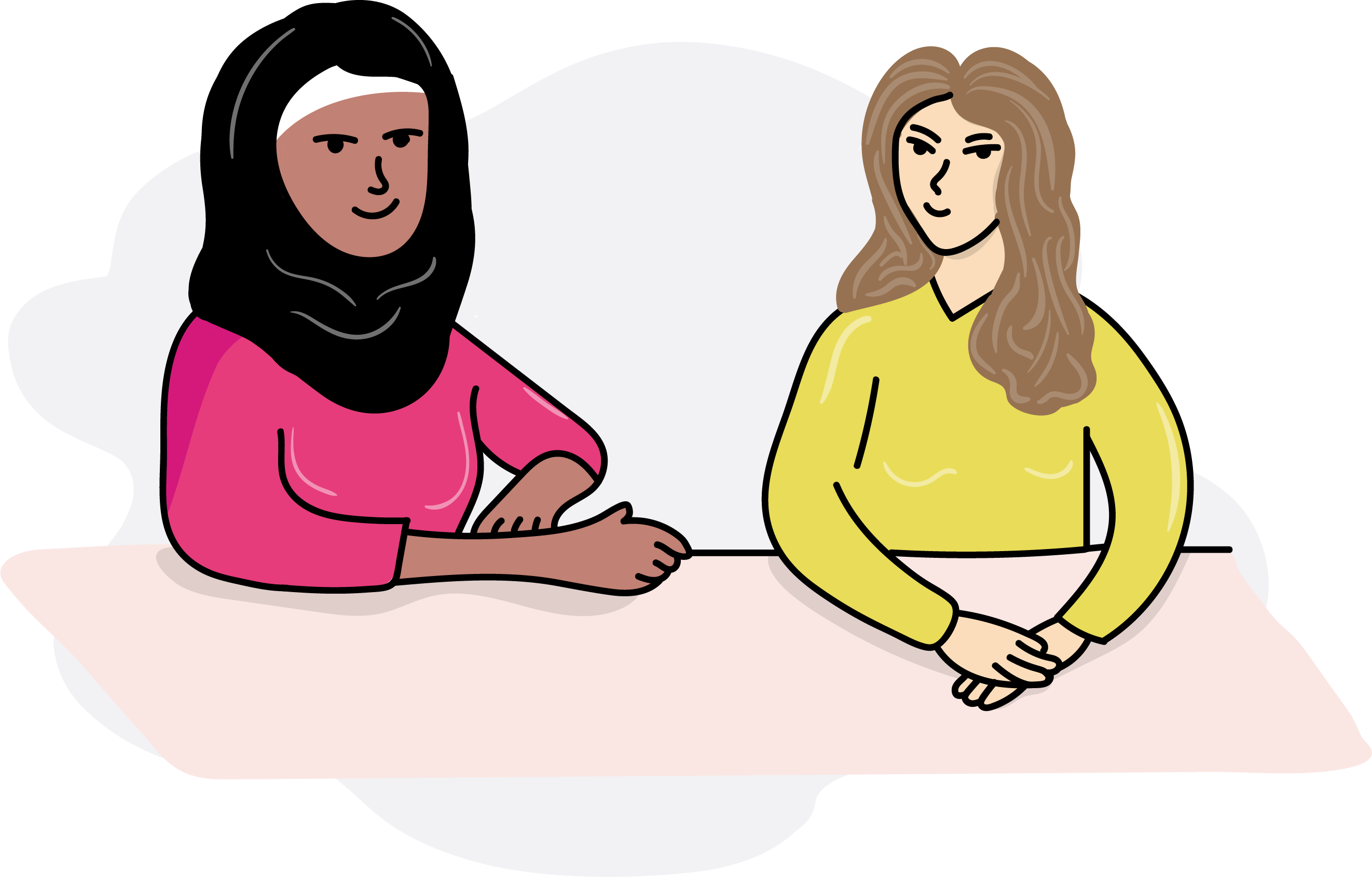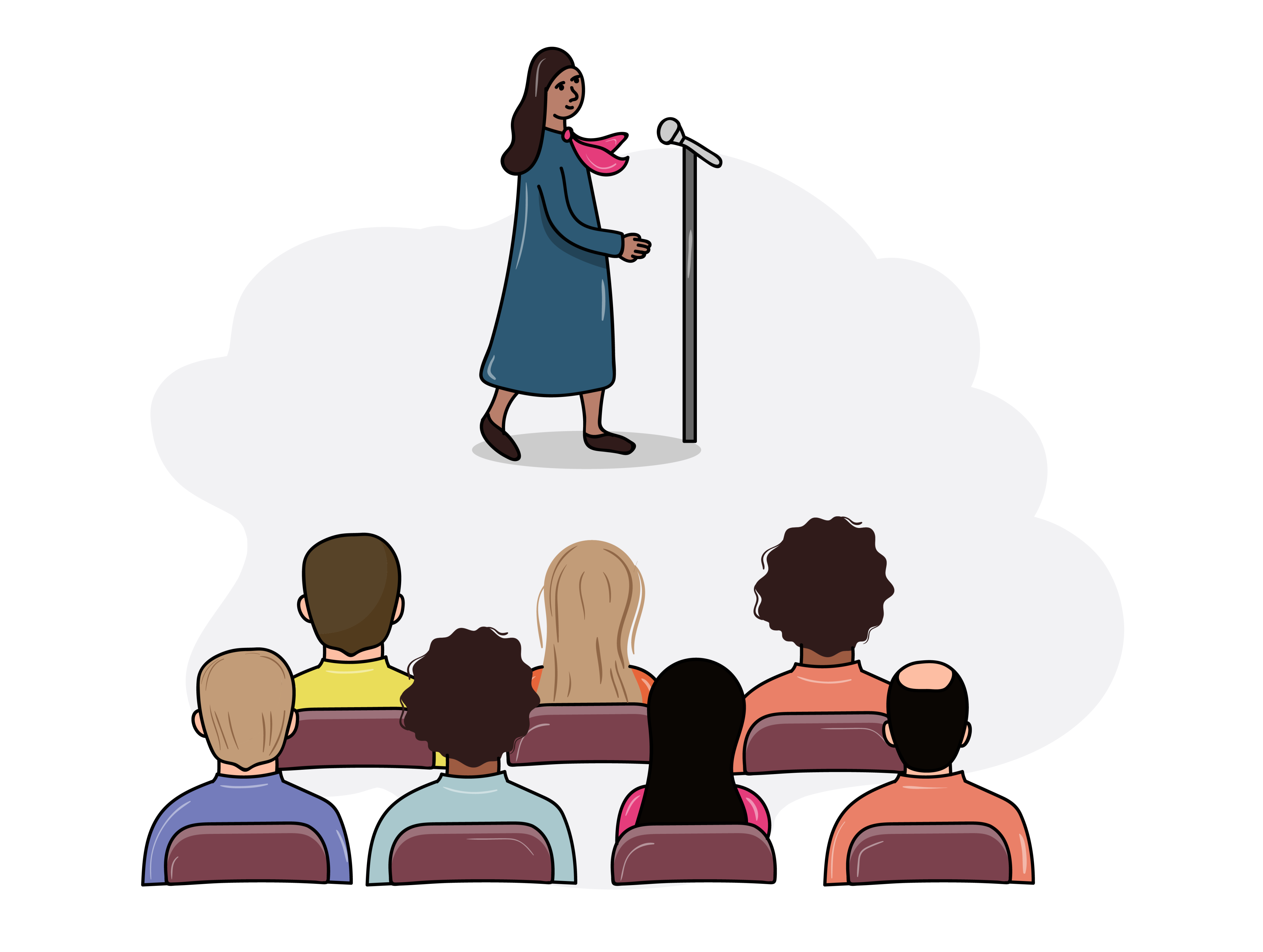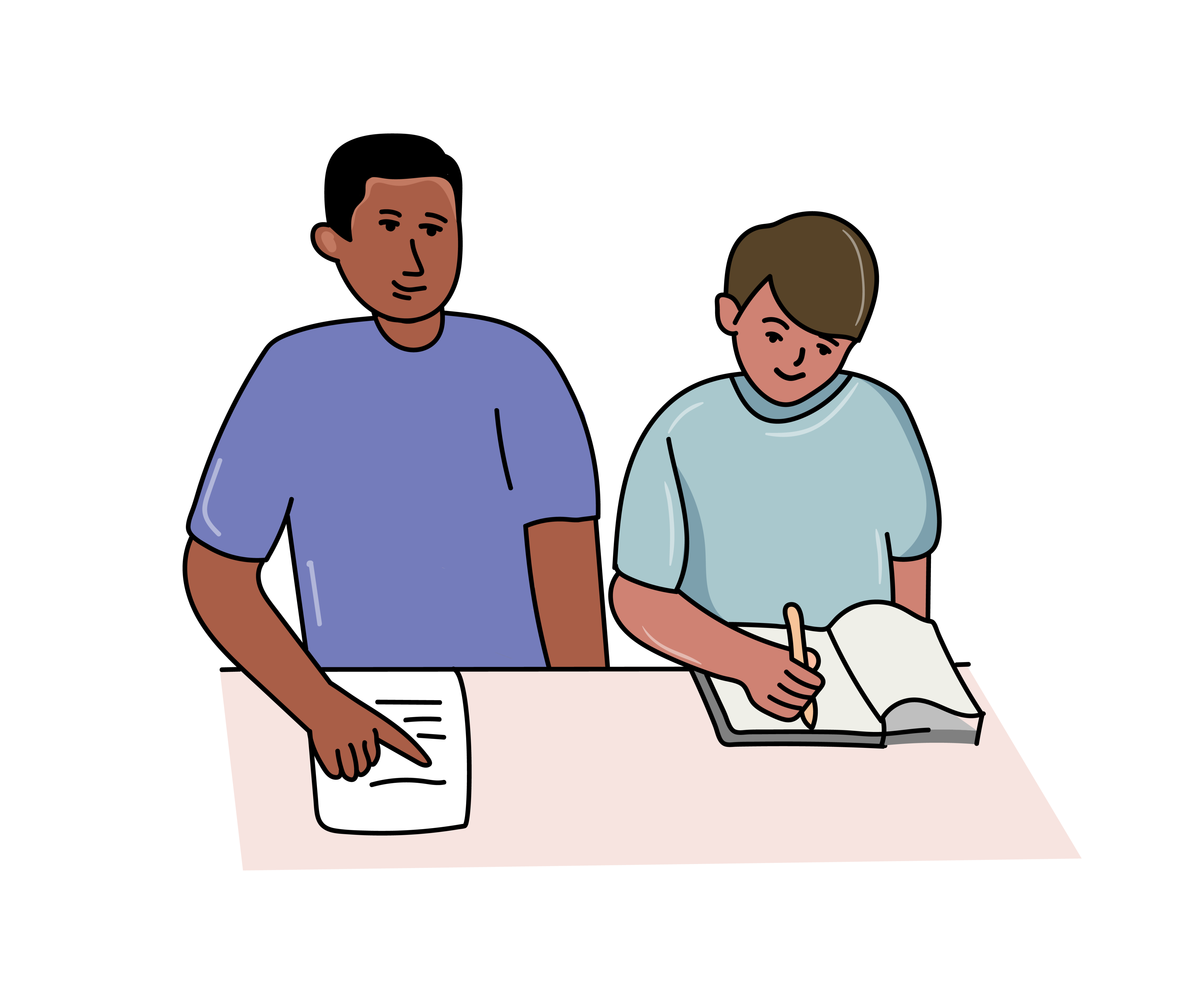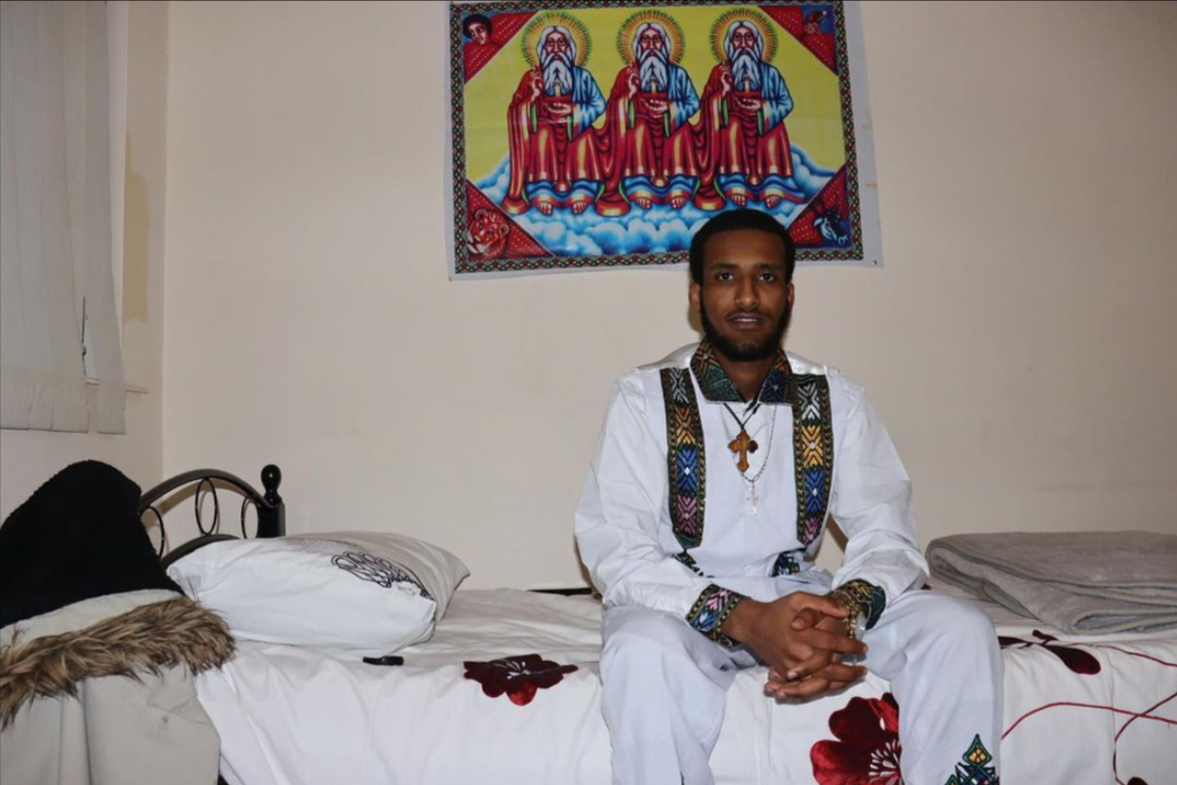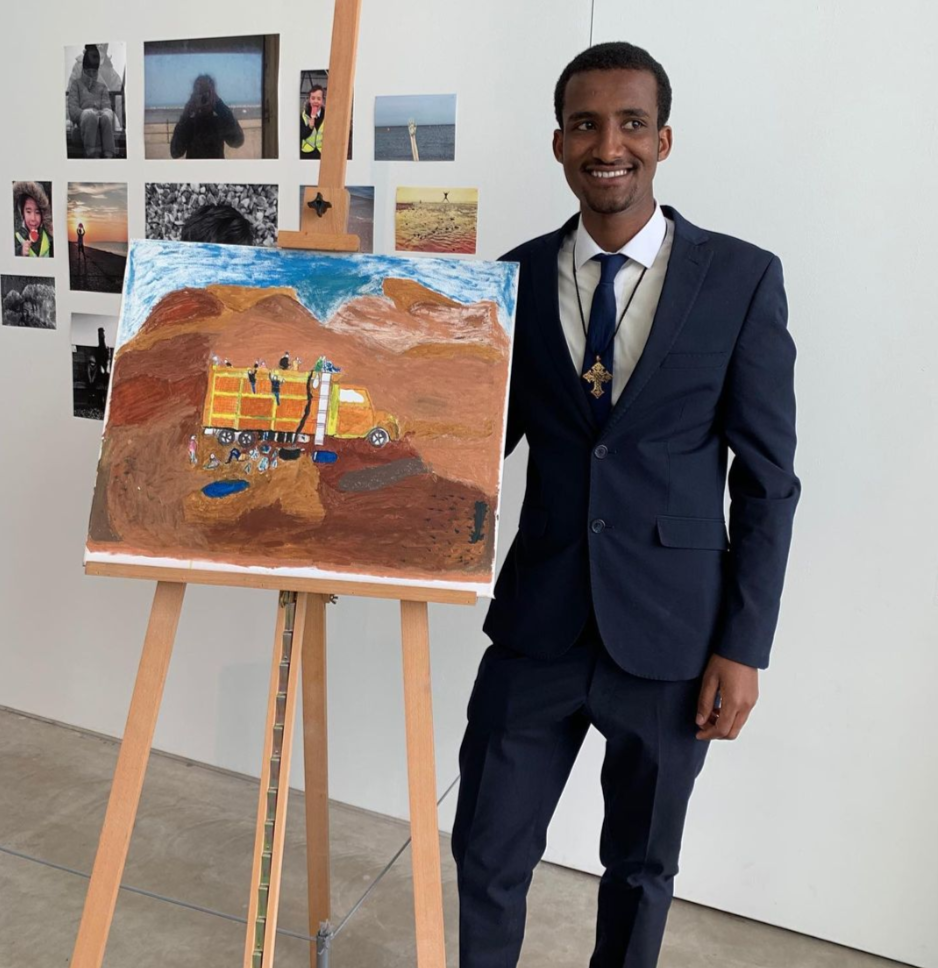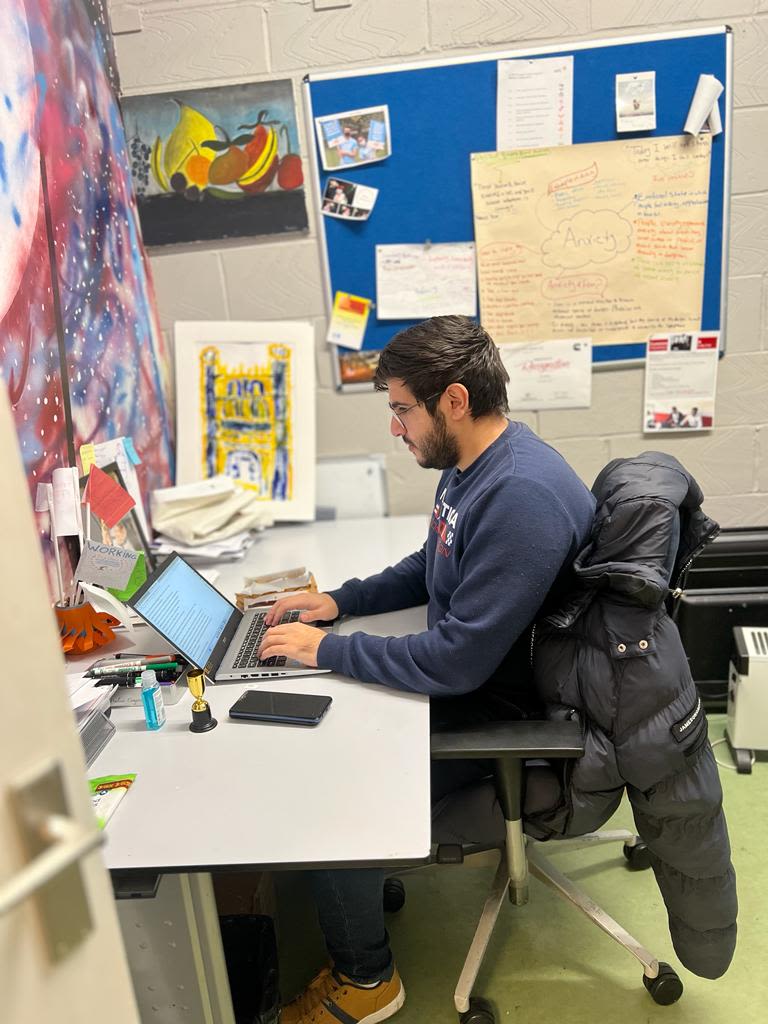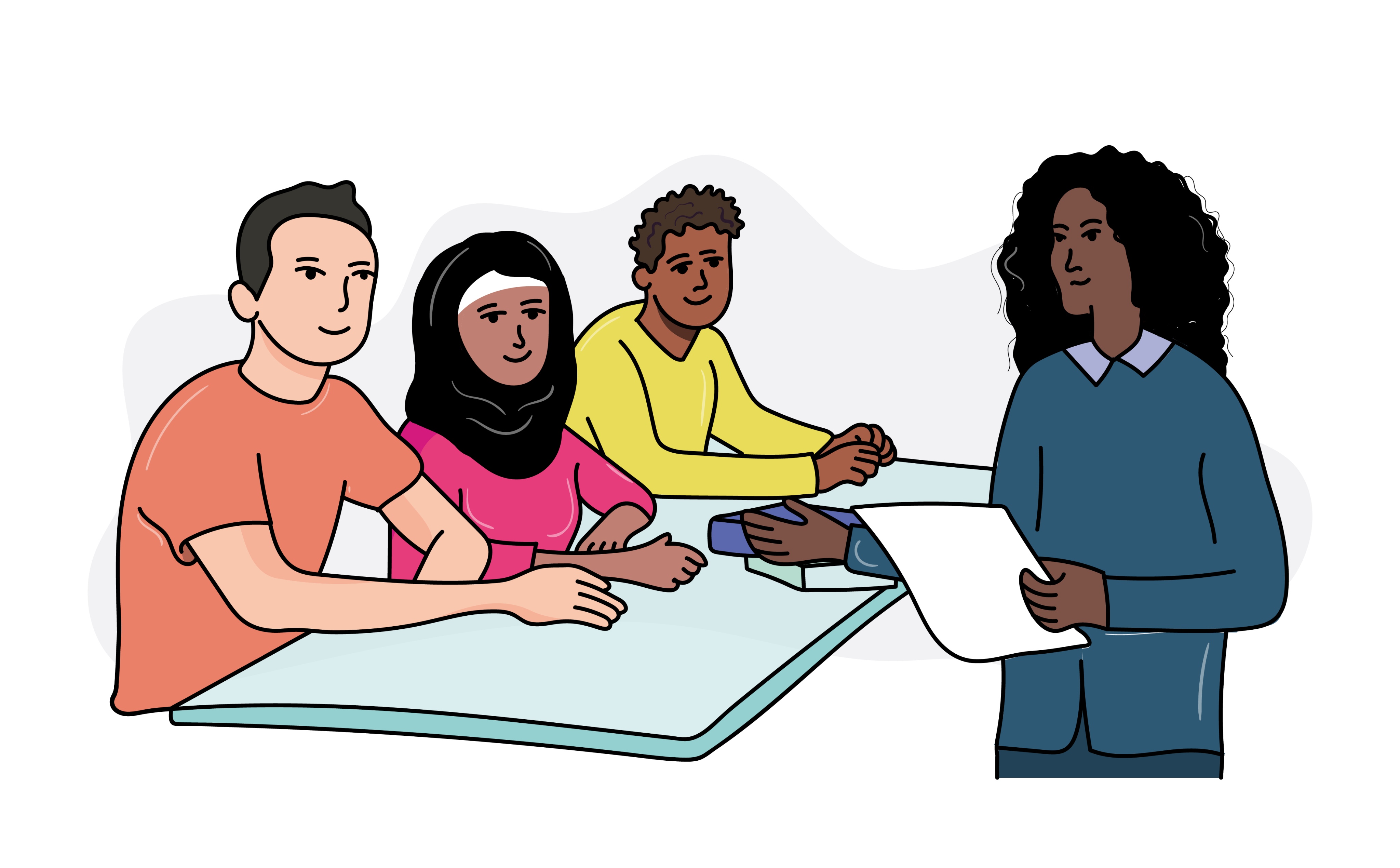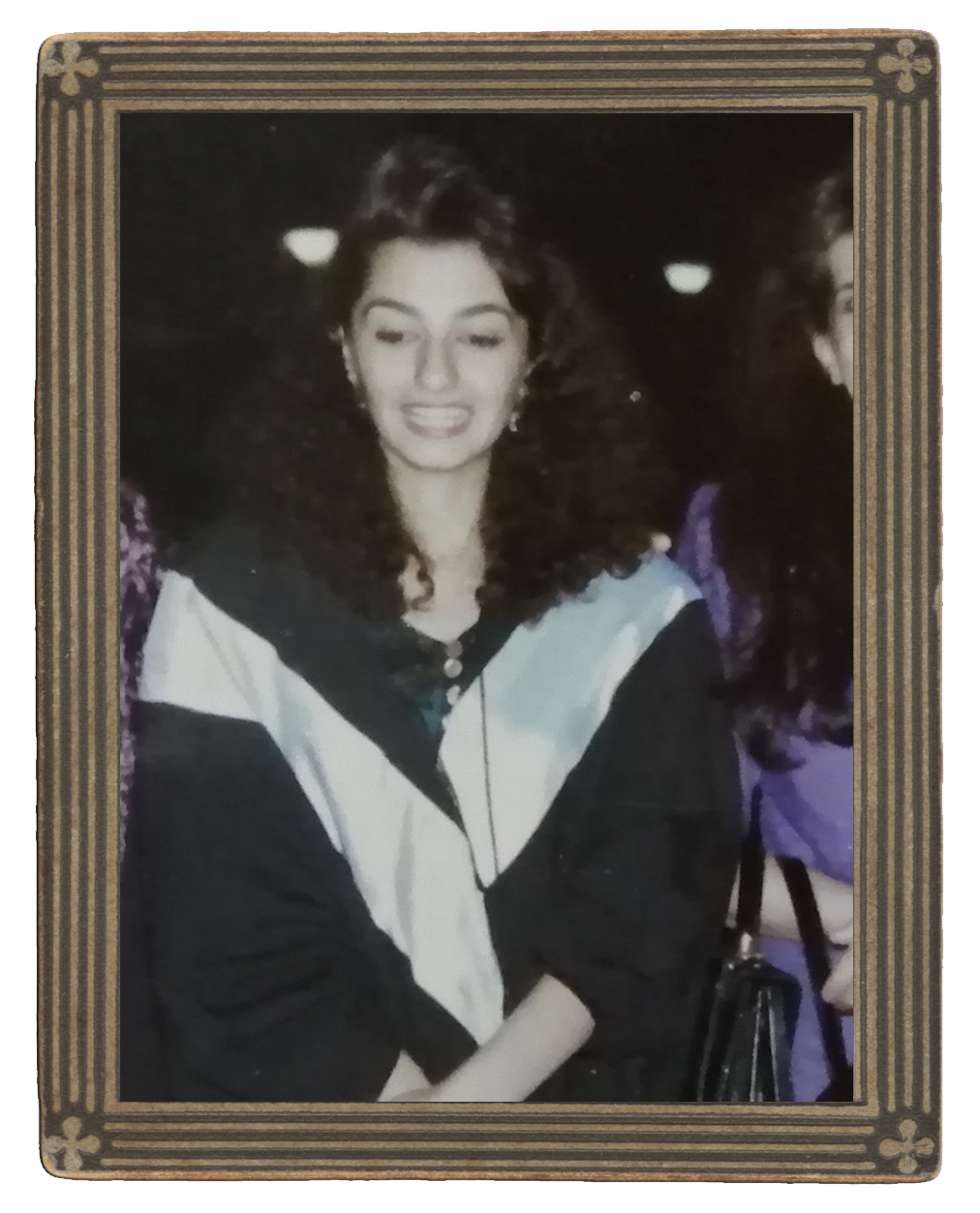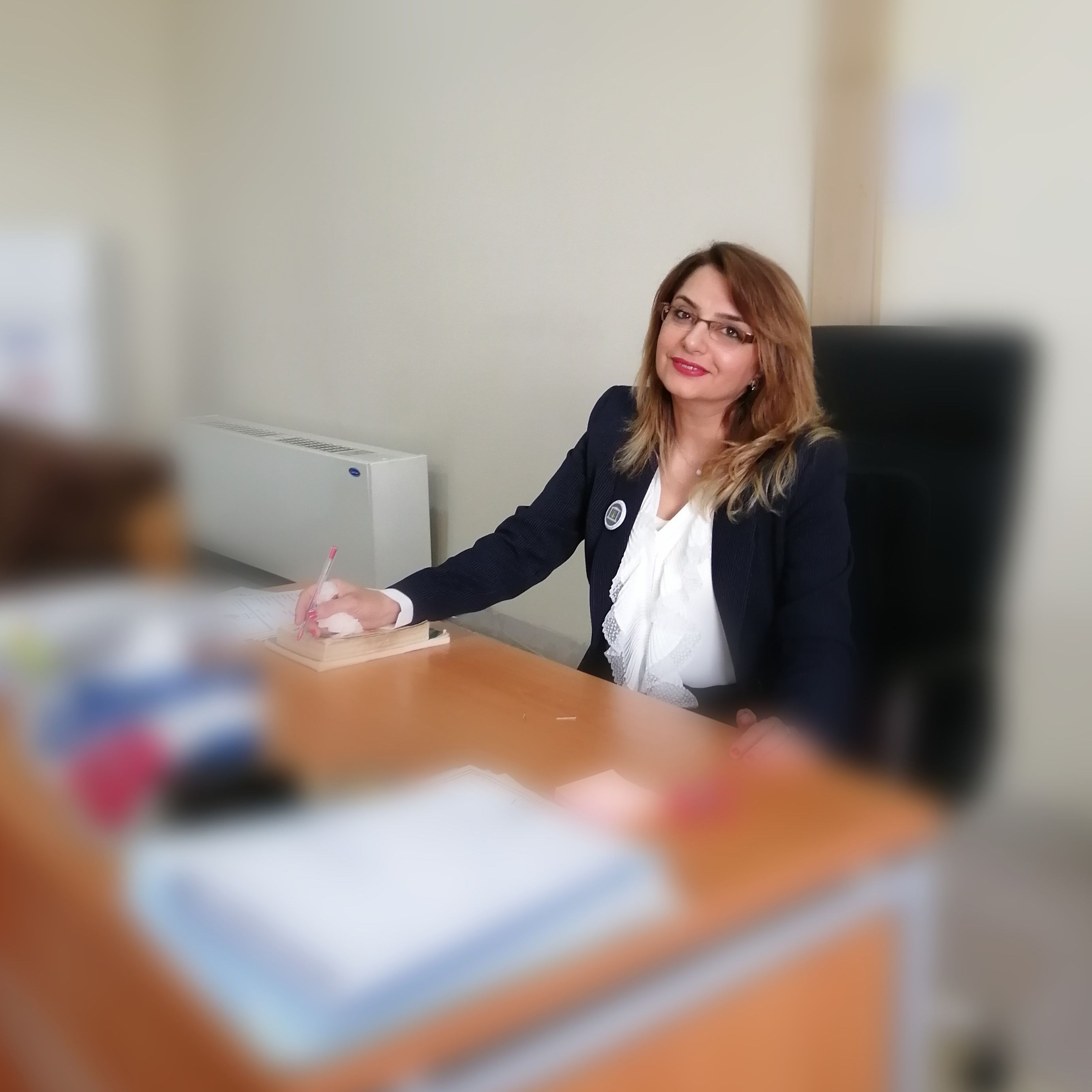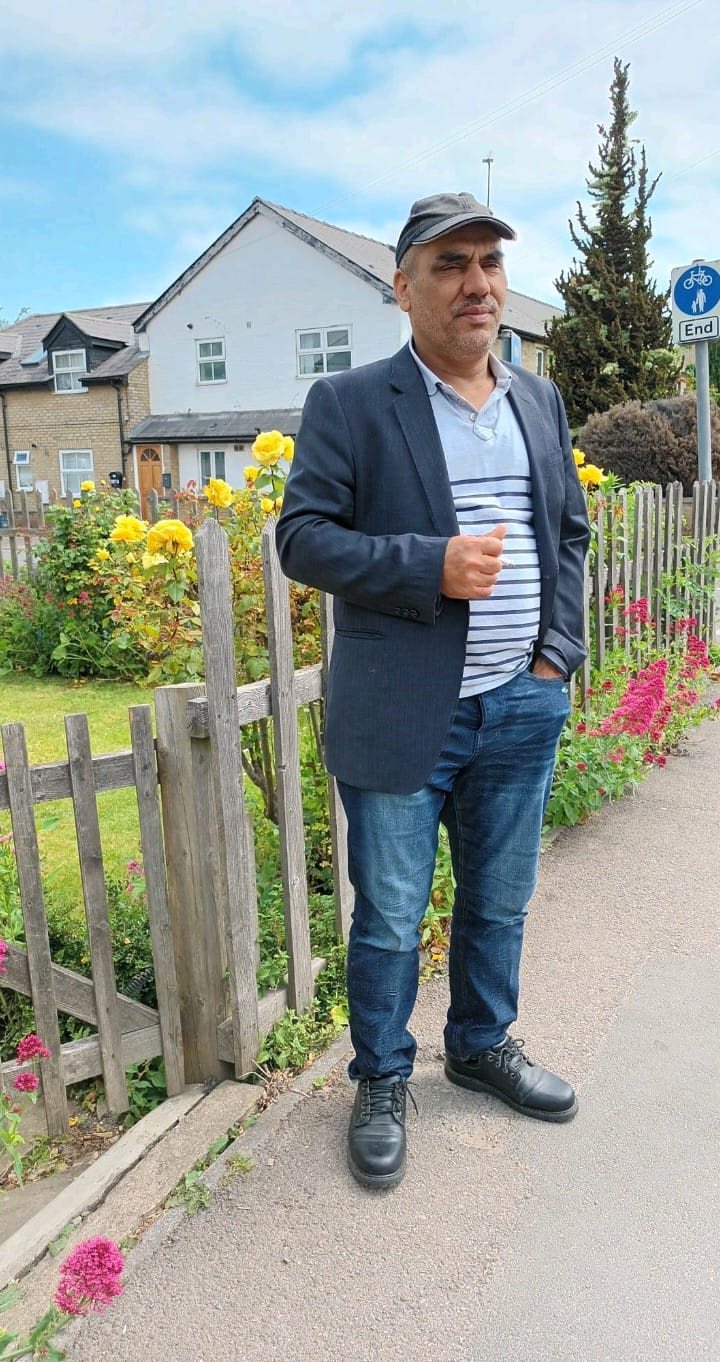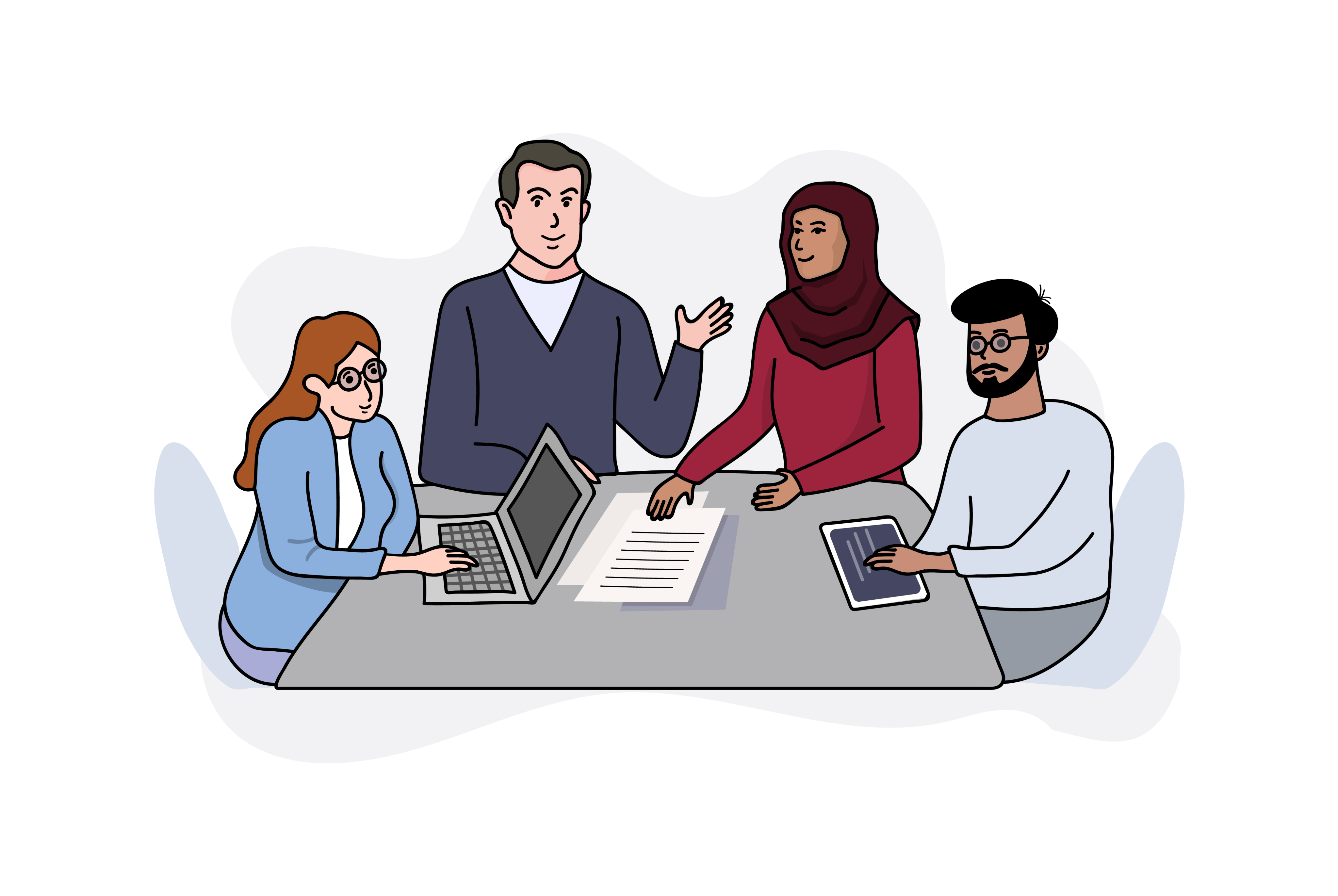Learning English:
The Difference It Made for Me
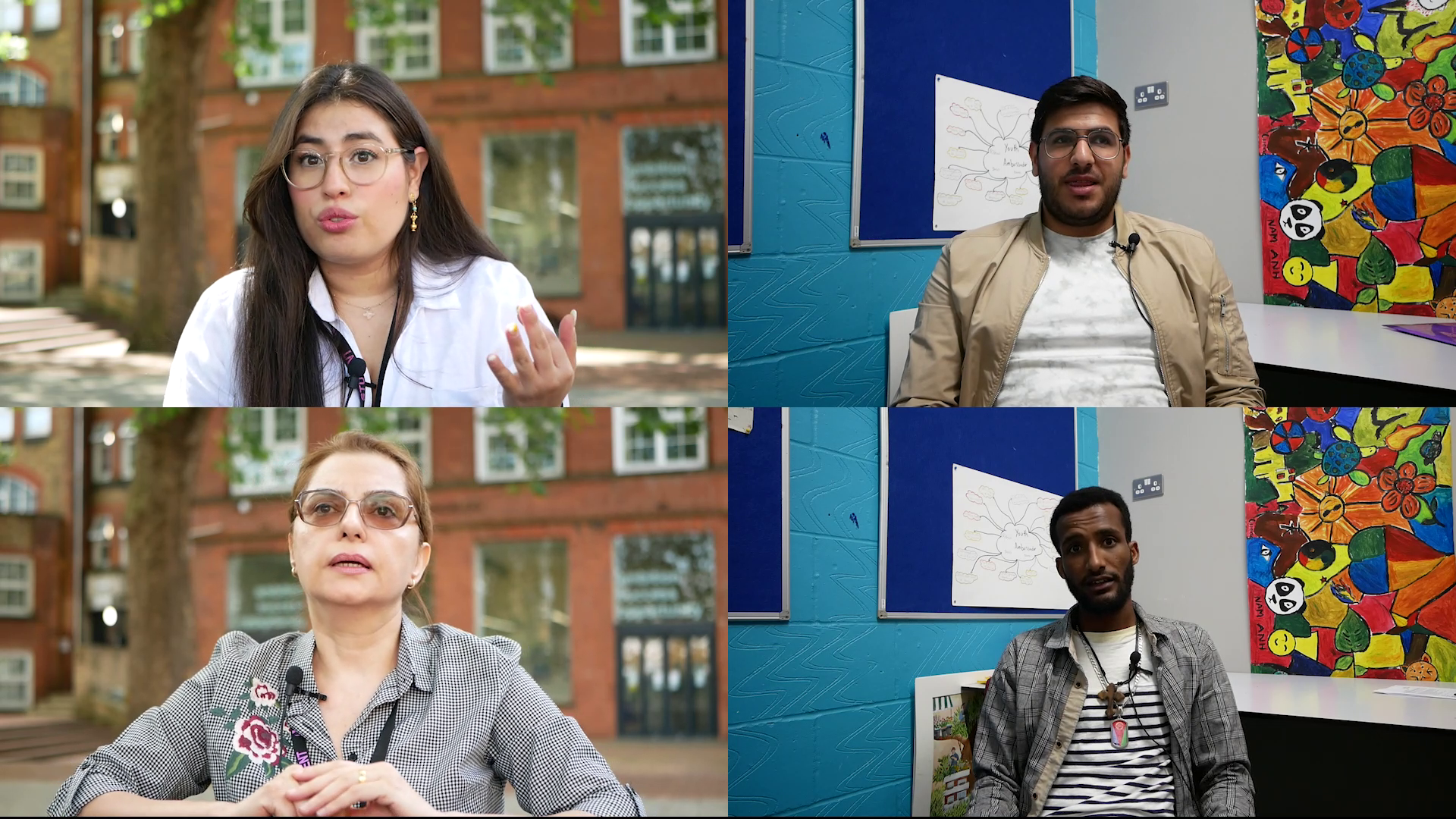
ESOL in the UK
In England and Wales, 5.1 million people speak English as a Second or Additional Language (ESL).




Multilingualism is a considerable asset.
Communities have welcomed people from all over the world, bringing a rich diversity of languages and cultures.
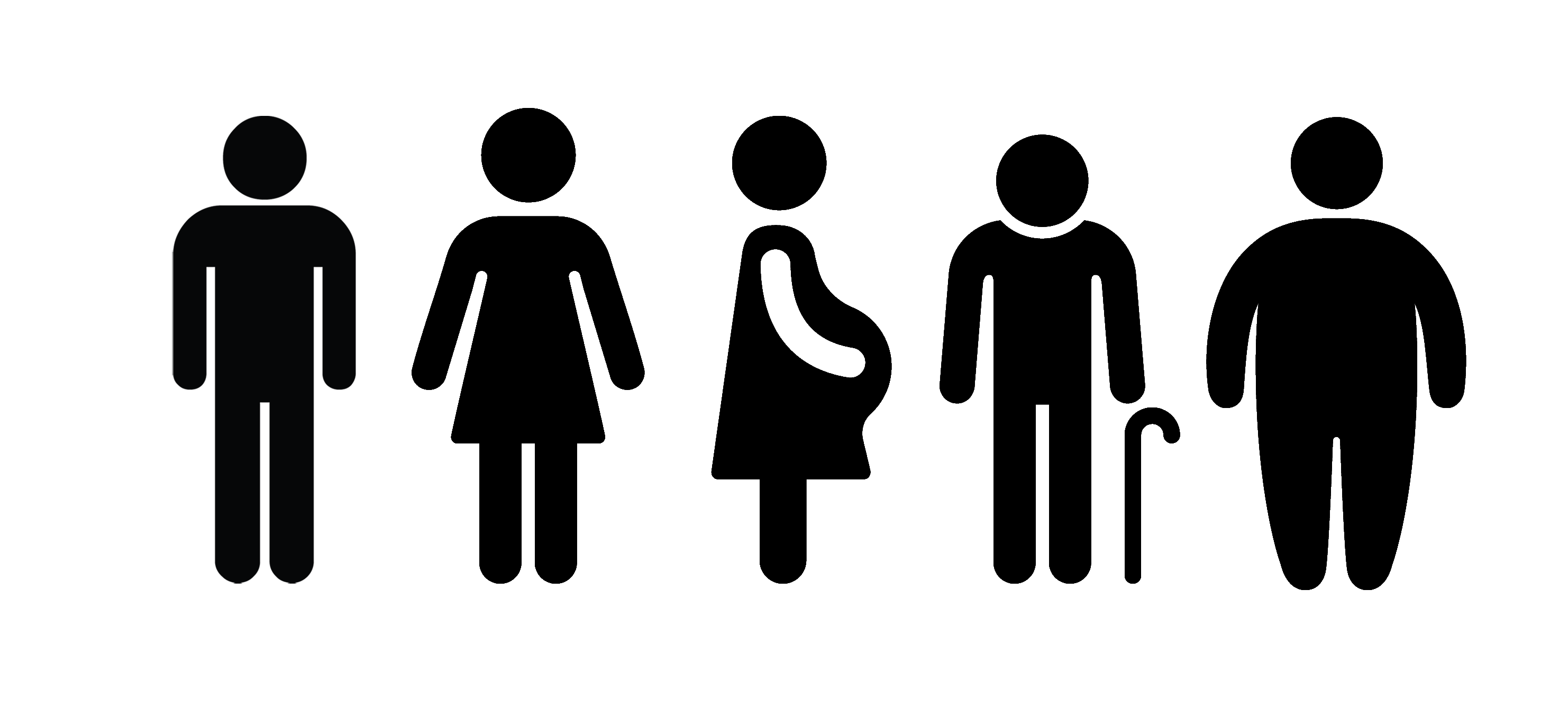


But, ESL speakers face a range of language barriers, to accessing their rights and entitlements, and to achieving their aspirations.
Particularly for the one in five who do not speak English "well" or "at all".
For many, English for Speakers of Other Languages (ESOL) classes have been the key to a new language and a new life, unlocking their skills and opportunities.
Here are some of their stories.
Grmalem, an Art student and deacon from Eritrea.
Obaida, a Computer Science student from Syria.
Parwin, a psychologist and social worker from Kurdistan.
Shir Mohammad, a father and security guard from Afghanistan.
Juliana, an aspiring teacher from Colombia and Spain.
Nasira, a nursery assistant and mother.
Life before ESOL
Grmalem:
“Speaking another
language is helping
yourself to live in this world,
freely”
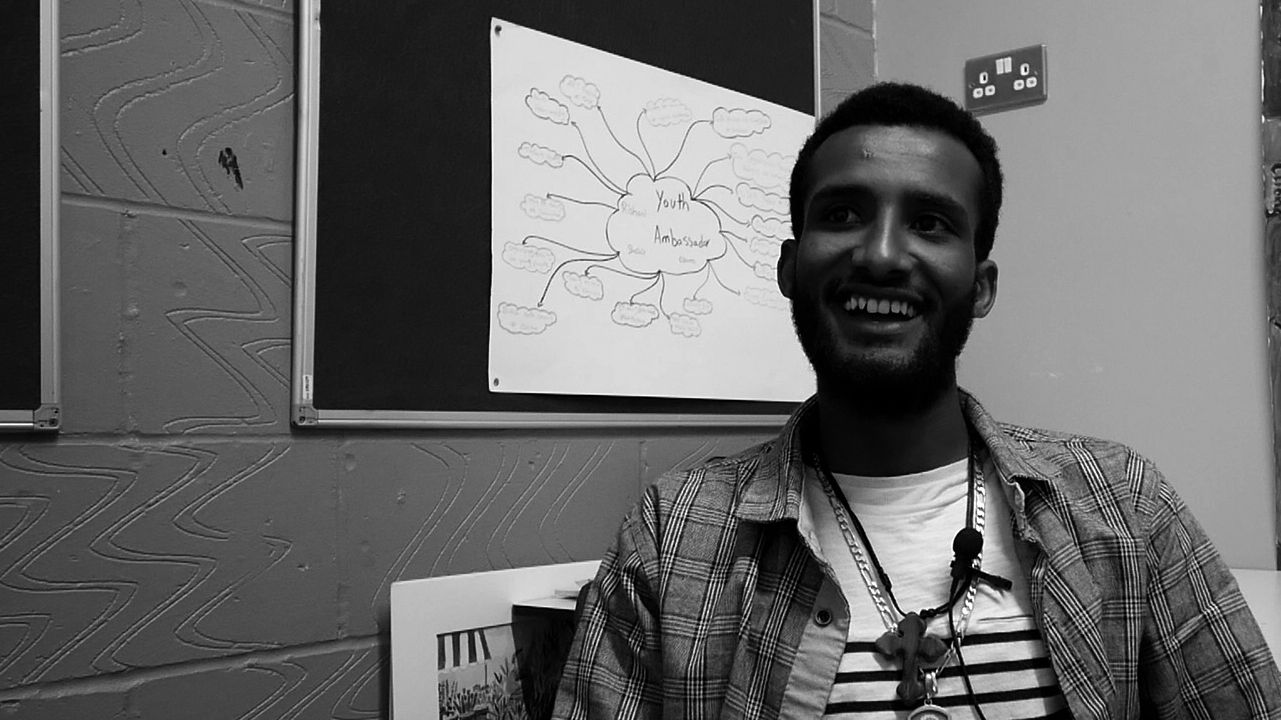
My name is Grmalem. I’m from Eritrea. I am a student at UCA Fine Art for my second year. I am a youth ambassador with KRAN, and I am a deacon at church.
Grmalem wearing Nay-Habesha clothes in his temporary accommodation, 2018.
Grmalem wearing Nay-Habesha clothes in his temporary accommodation, 2018.
I speak Tigrinya, English and a little Amharic. I wish I was speaking English before I came to this country because I struggled lots, to explain my feelings, to explain my needs.
Right now I am speaking English and that comes from the ESOL. I studied overnight, I studied with a tutor at home, I studied with my foster’s friends, I studied with my friend’s friends, I studied with anybody who’s literally willing to be help.
Grmalem with his artwork at the Turner Contemporary art gallery in Margate, 2018
Grmalem with his artwork at the Turner Contemporary art gallery in Margate, 2018
It changed my life to communicate with people. I love to be with any new people, chat to them about their journeys, chat to them about their futures, what they want to do.
To speak many languages, you feel free, and also, to help other people, and to help yourself to understand.
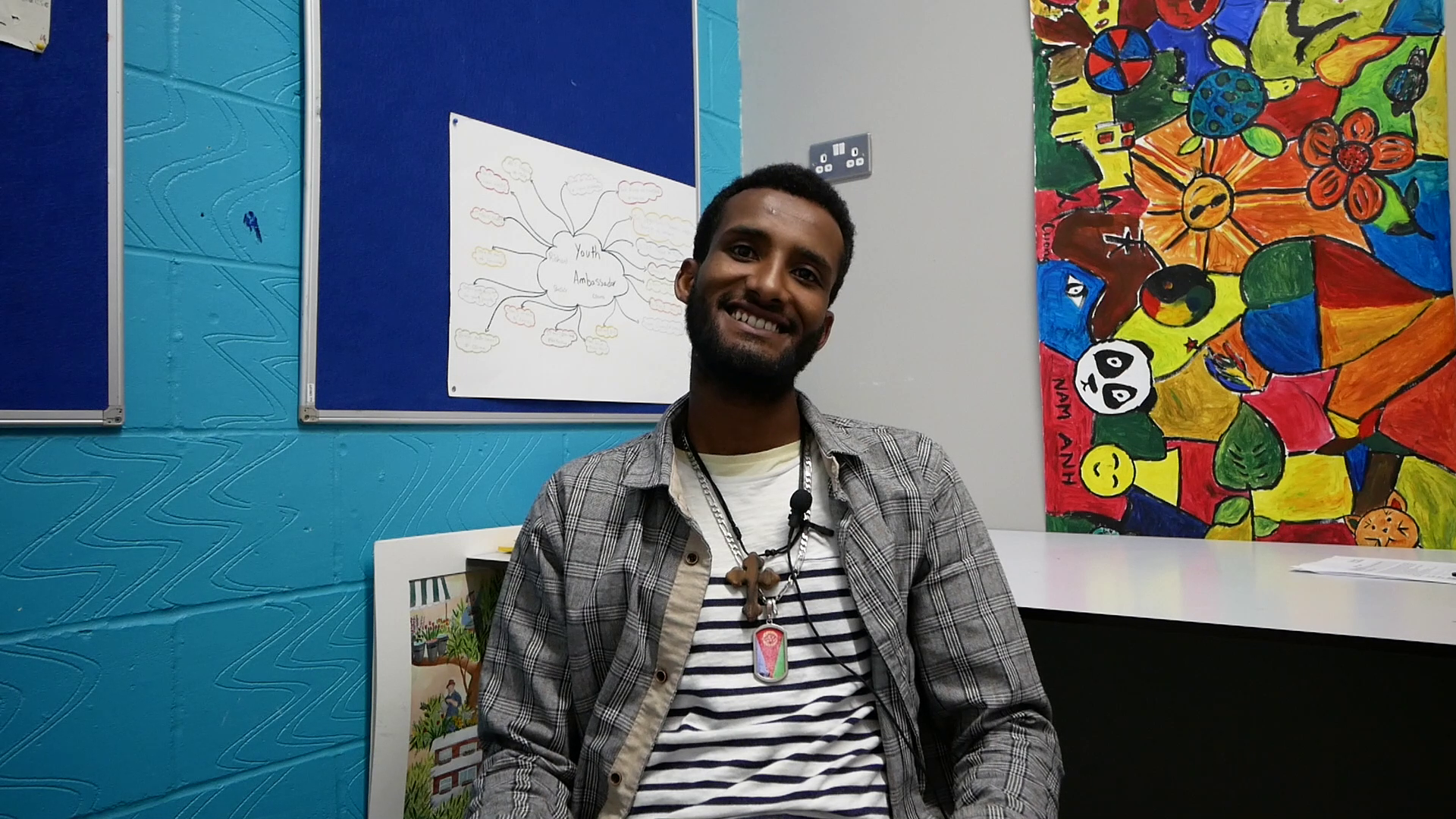
Obaida:
"My class was a safe space,
a confident space, for me"
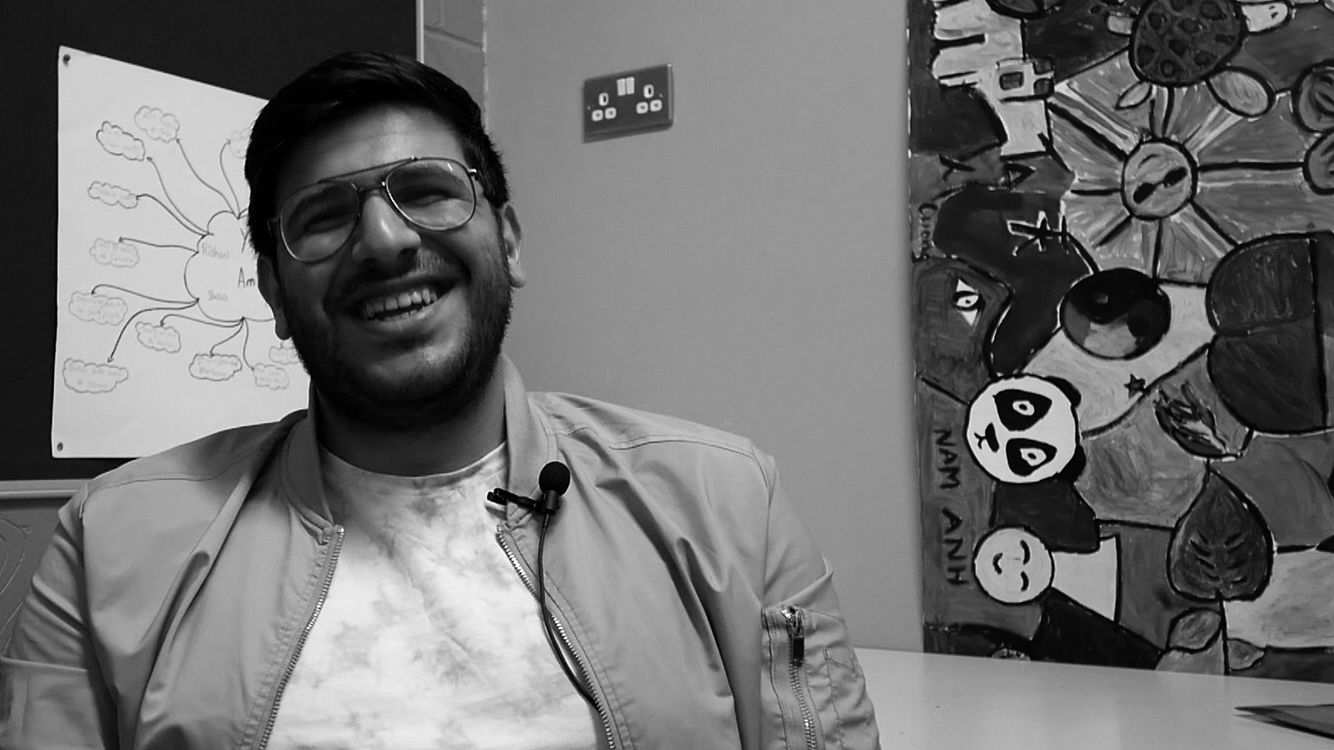
My name is Obaida. I’m originally from Syria, and I’ve been in the UK for five years. I do study at college right now, Computer Science, Level 3. I do also work at Kent Refugee Action Network as a Youth Ambassador.
Obaida working as a Youth Ambassador at Kent Refugee Action Network.
Obaida working as a Youth Ambassador at Kent Refugee Action Network.
I speak Arabic and English. [Speaking more than one language is] basically a skill to help you in your life, this will help you in the future jobs to understand more about different cultures.
When I first arrived, I had I would say social anxiety, like to talk to people. Within my [ESOL] class it was a safe space, a confident space, for me to just go and speak to someone and make friends.
It impacted my life a lot, because now I have lots of friends!
[Anyone thinking of going to ESOL classes], I would say it’s the best idea, they should do it - it’s fun, it’s learning basically about English and about life in the UK. They do other classes like such as Maths, IT, cooking, so it’s all life skills.
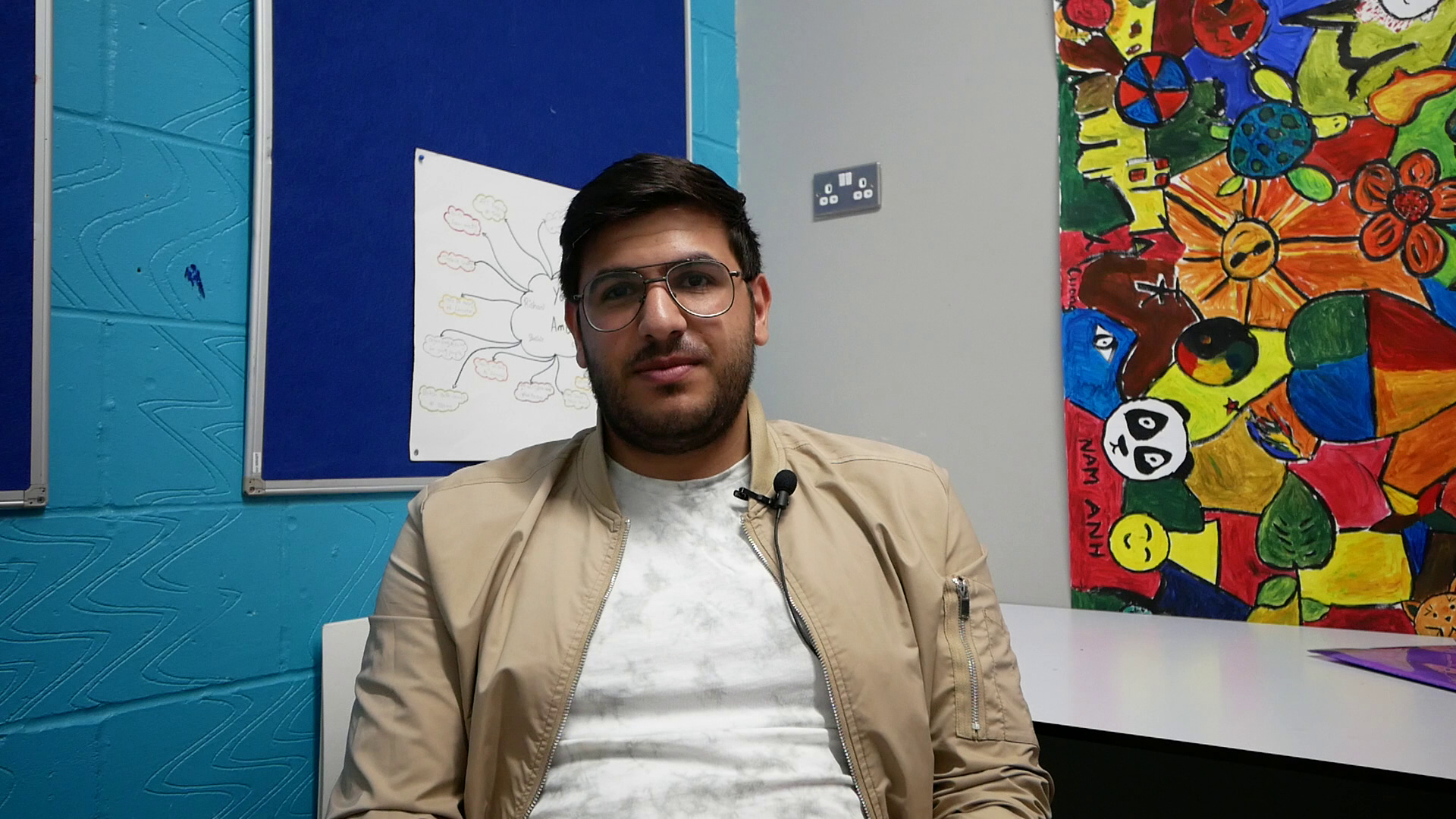
How ESOL classes are improving lives
Parwin:
"We need more
places like ESOL"
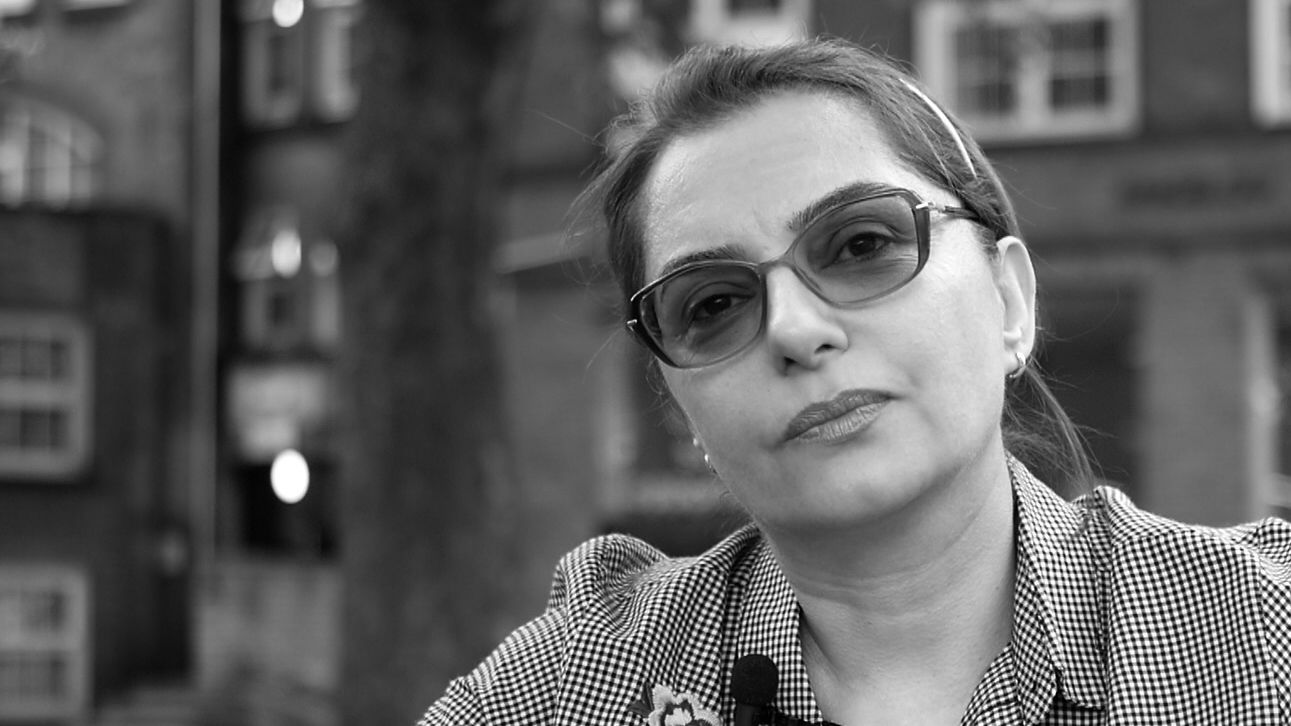
I’m Parwin, from Kurdistan. I am a psychologist and also speak Kurdish and Arabic.
Parwin's graduation from Al-Mustansiriyah University circa 1994.
Parwin's graduation from Al-Mustansiriyah University circa 1994.
I’m studying ESOL and I’m crazy about it. I try not to miss any any classes. Why? Because as a first step you want to be able to communicate with people, you need to learn their language. It makes it easier to have friends, to find a job, many things… many things.
The more you know languages, the more your thoughts are expanded, in my opinion. When you learn a language, your society becomes bigger, to an extent.
If we had more places teaching ESOL everywhere, that would be great. I heard that out of London there is a queue.
Parwin working from her office in Sulaymaniyah in the Kurdistan Region of Iraq.
Parwin working from her office in Sulaymaniyah in the Kurdistan Region of Iraq.
[When I finish my ESOL classes] I need my English to be good enough so I can equalise my degree and work in the field that I like and have experience in. I am a psychologist and also have experience of being a social worker for many years.
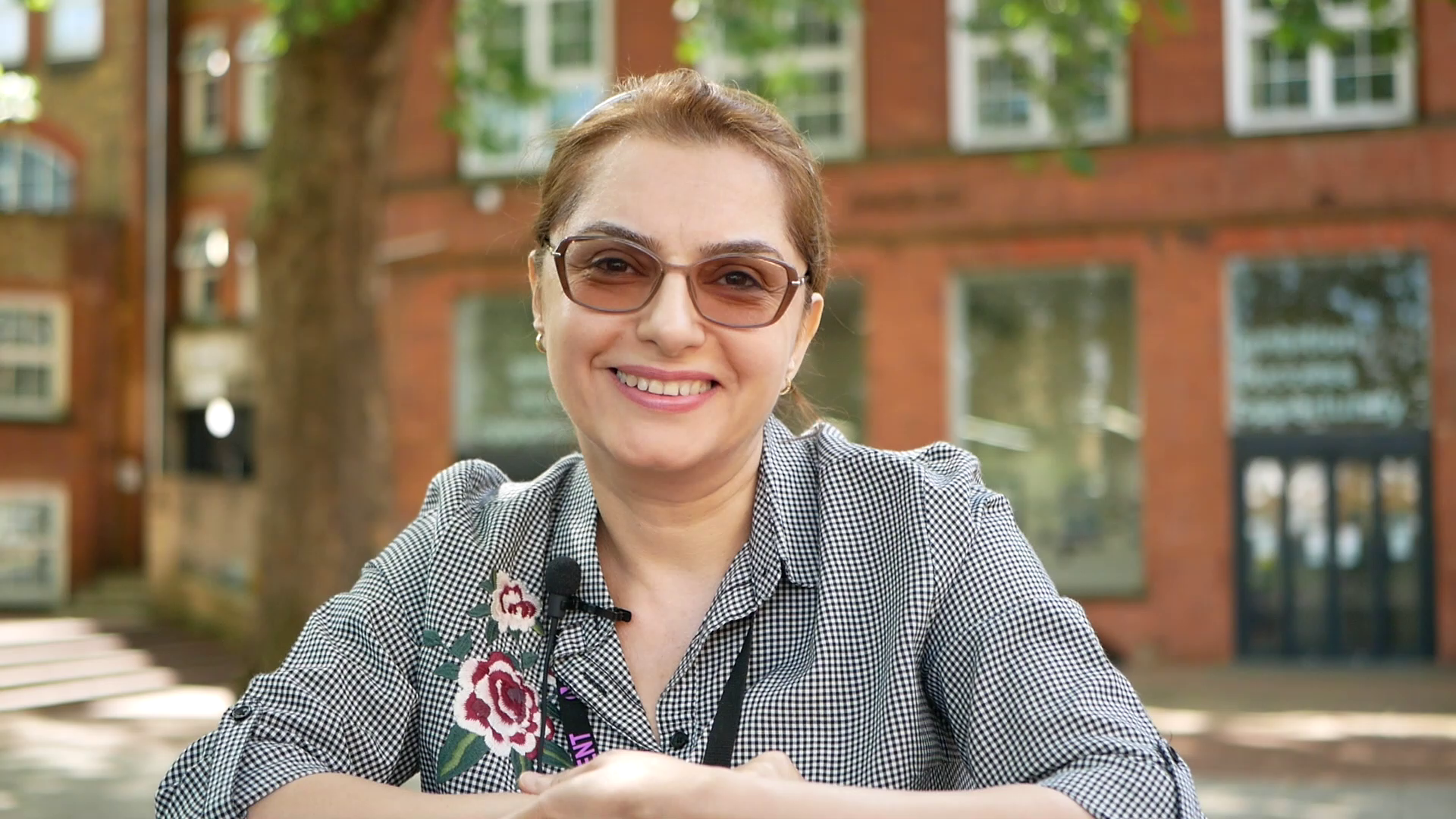
Shir Mohammad:
"English changed
our lives"
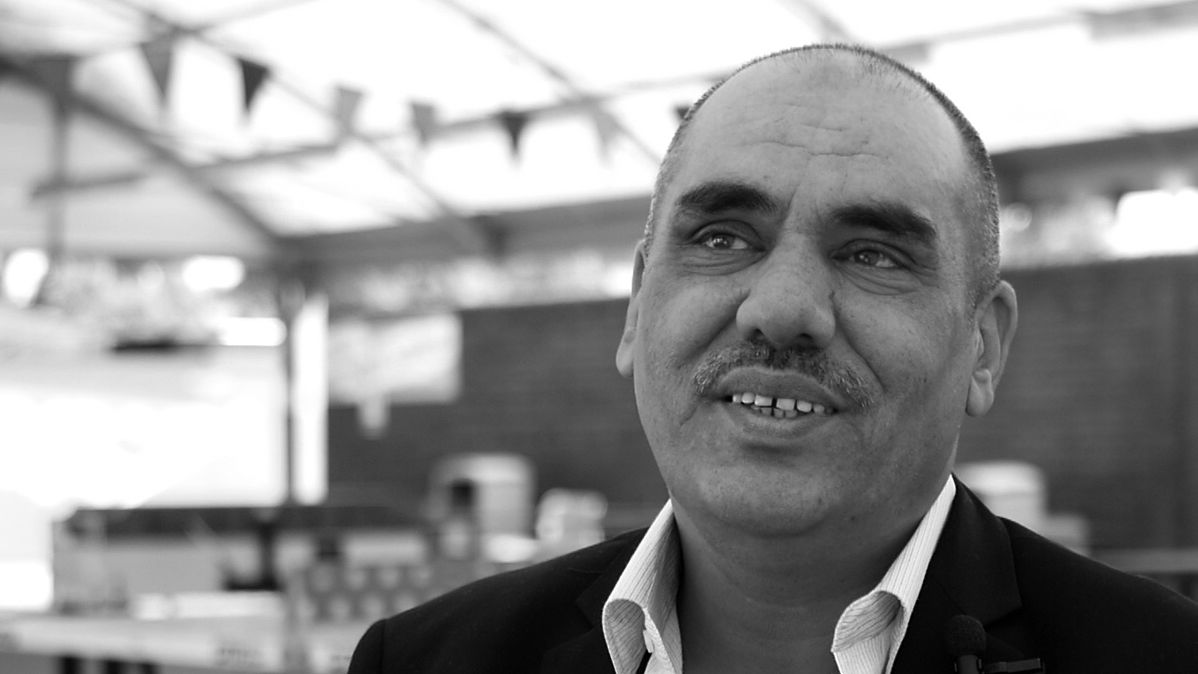
My name is Shir Mohammad Malikzada and I came from Afghanistan about two years ago with my family after a very tough situation. We had stress and anxiety. After 8 months I got a home in Cambridge. I’m very happy to have started a new life in the UK.
Shir Mohammad in Cambridge, where he lives. Photo taken by his son.
Shir Mohammad in Cambridge, where he lives. Photo taken by his son.
I can speak four languages: Farsi or Dari, Pashto, Urdu and English.
When I was a teenager, my mum said: ‘Language is a key: If you can speak in one language, you can have just one key; if you can speak more than one language, you have several keys to open the good ways in your life’. I think it is good that people know many languages. [It can help them] to solve their problems.
When we arrived in the UK, I couldn’t solve my problems, I needed an interpreter. My wife and I, both started ESOL classes and we love them. They have been so good. We love our teachers, and we love our classmates.
English is very important in the UK because if you want to go to a store or anywhere, you have to talk to a bus driver, to a shopkeeper... If you know English, you can. You can have a life of good and comfort. But if you don’t know English, you have many problems.
When I finish my ESOL classes I’m trying to find a good job, to handle my life in Cambridge. I was a security guard in my country, so I have experience.
I have four children and, at first, we didn’t know English but now we can speak it. English changed our lives. I’m very happy because I can speak English. I hope my children finish their education in Cambridge and that they arrive to their own destination they want.
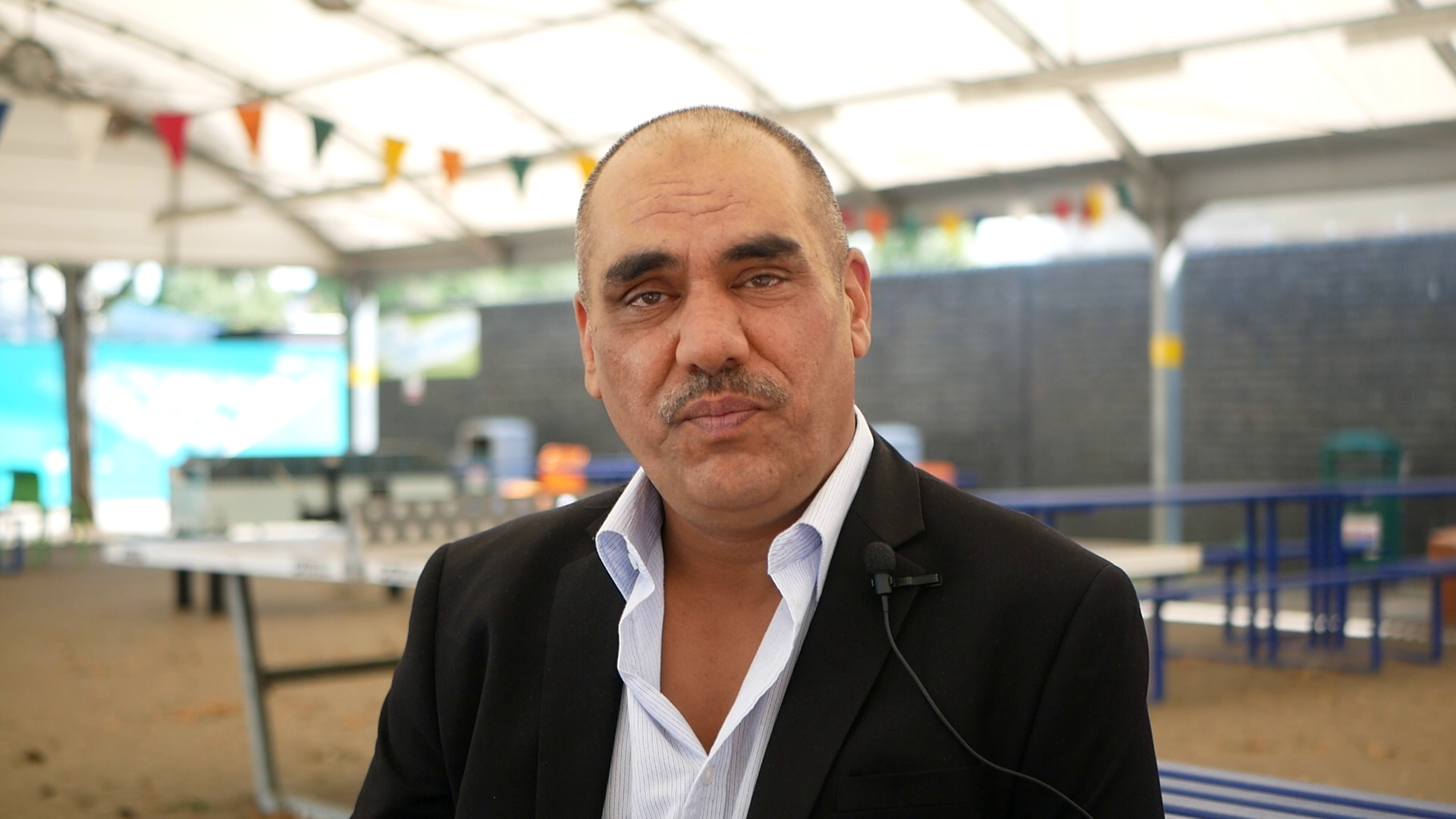
Juliana:
"When we have help,
we can contribute back"
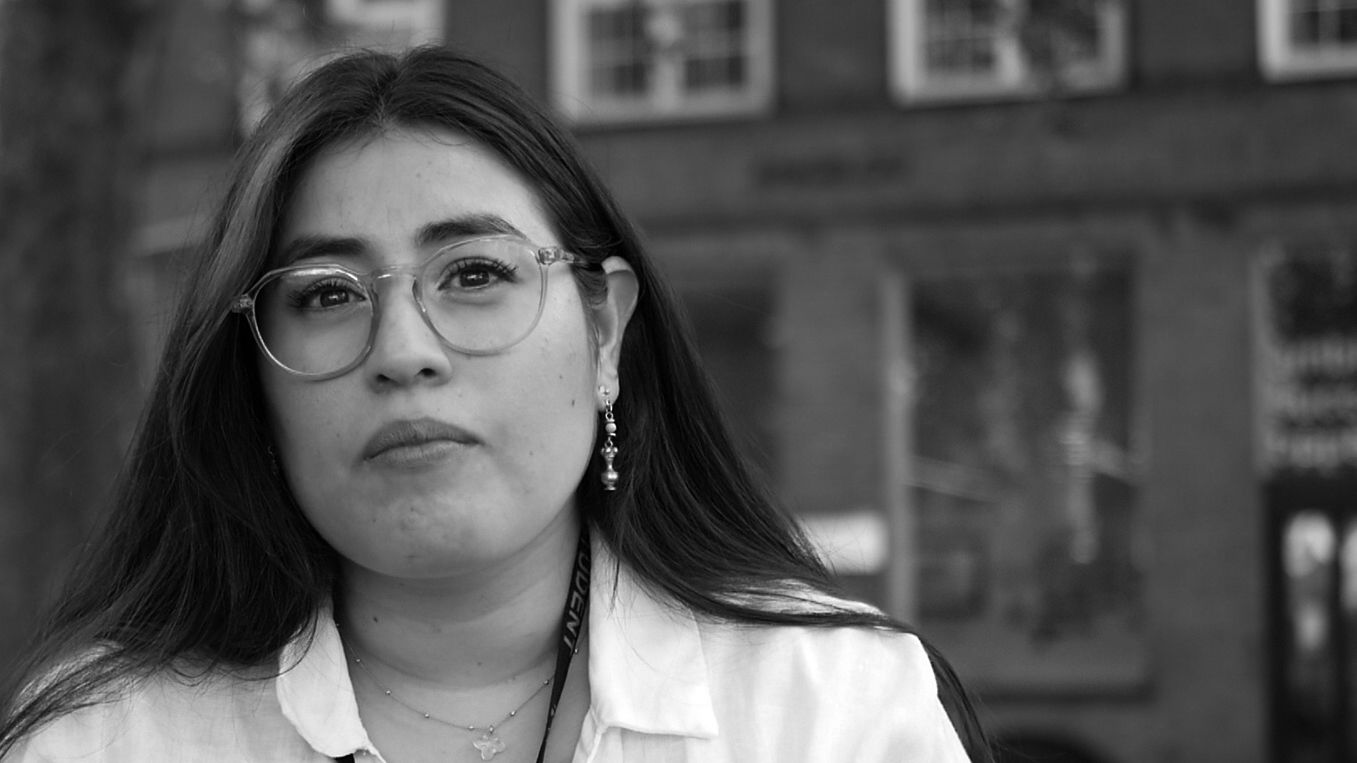
My name is Juliana and I’m from Colombia but grew up in Spain. I am currently studying English, GCSE Maths and another course preparing me to work in a school, it’s like a teaching assistant. I like it.
My native language is Spanish and I’m trying to learn English as my second language.
With two languages I can have more opportunities to get a better job, acquire another course, go to the university… I would like that. I would like to be a teacher.
My ESOL class is good because the teachers are very friendly and very professional as well. They usually try to teach in different ways to make us enjoy the lessons. This makes it easier to understand and learn English. I like it.
For me, ESOL classes are very helpful… Last year I worked as a cleaner with a supervisor speaking to me in Spanish. Now I’m working in an English company, and I can communicate with my supervisor and my manager. I can also ask about my supplies or about my requirements, and that’s good! Also, my salary has increased!
I would like to continue to improve my English and move forward to Level 2. After that I will try to go to University. I need more fluency for that.
ESOL classes are the best way to feel included in this country… To write a letter for the GP, to rent a house, you will always need English. And this is the best place to learn, you have the best environment … Alone in your house, it is really hard because you need to listen to others.
We need to encourage others and I need to help with this because many people come to London who don’t speak English well and usually have a really hard job. We need to move forward. Because when we have a better job, and better conditions and benefits, we can contribute back. I think this is the best way.
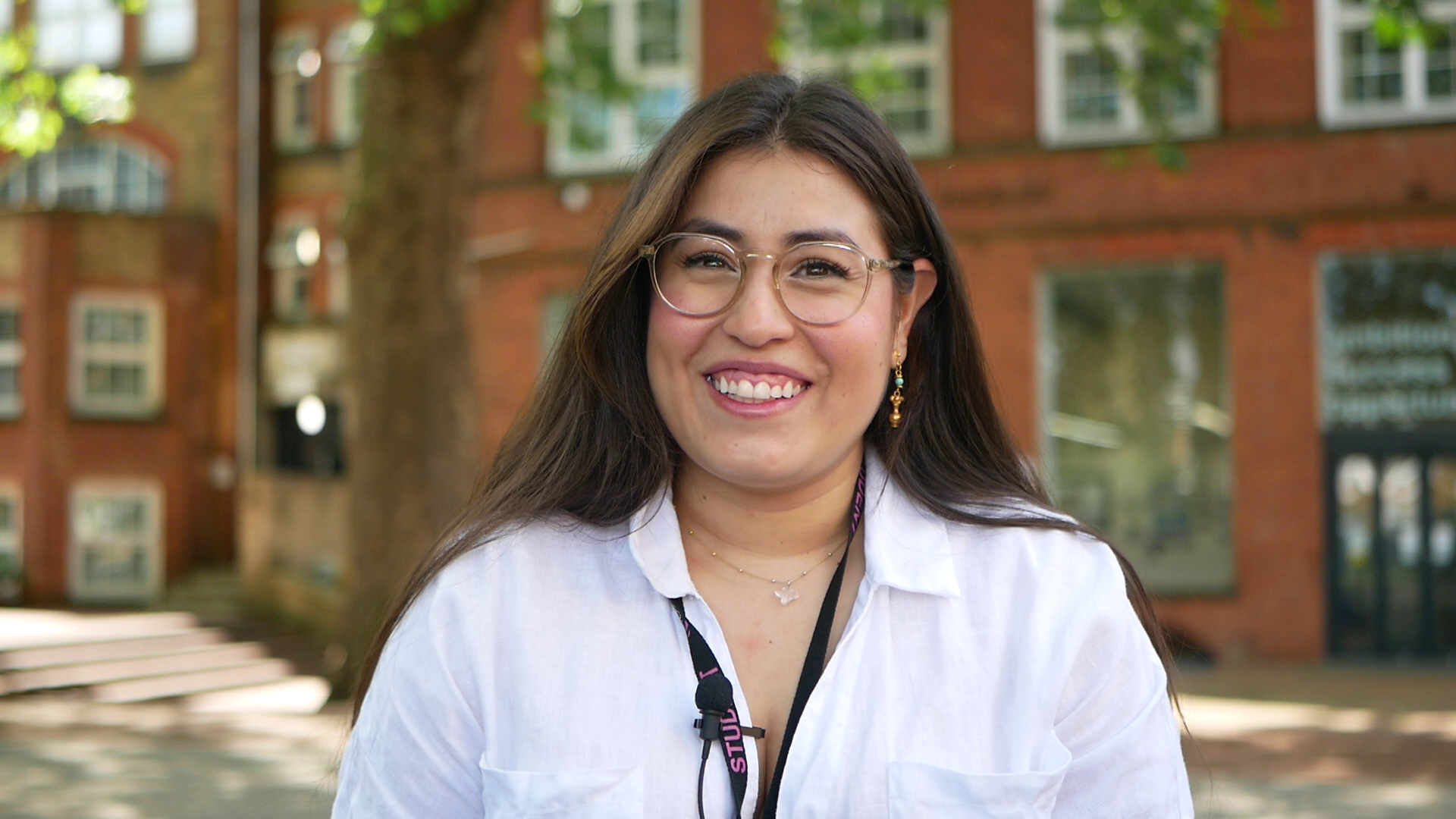
Nasira:
"To learn anything,
you have to step back
from your comfort zone"

My name is Nasira and I have been living in London for 20 years. My family and friends encouraged me to go to college and study. I am currently studying GCSE in Maths and ESOL. A few years ago, I had an accident, and I was feeling very low. I was drowning myself and I didn’t know where to go.
I decided to go to college and study. In the beginning, I felt very sad and lonely, but the teachers were so helpful, and they understood our problem. They understood I was learning English to be able to communicate with other people.
When I was at college, I felt great. I left my daily problems behind and, I felt so good. I found [English classes] in college [are] the best place to express yourself. I don't feel shy to ask questions because this is a platform to learn and teachers are willing to speak to us, explain to us. They never feel awkward when you are asking questions.
I think it doesn’t matter how much you know; you don’t have to feel shy. Now, whenever I speak with my husband, children, or friends, I start in English. When I feel stuck, because I don’t know the words [in English], I continue in Bengali. Slowly I am learning. I don’t feel scared to talk. Now, when I talk to people, I talk confidently.
[English classes] will help me to get [a] job like, you know, I can be a teacher assistant; I can work in [a] children's centre. I can work in the hospital because I know good English now and I know how to communicate in [a] different sector. If you want to learn English, if you want to do anything, you have to be adaptable. To learn anything, you have to step out of your comfort zone.
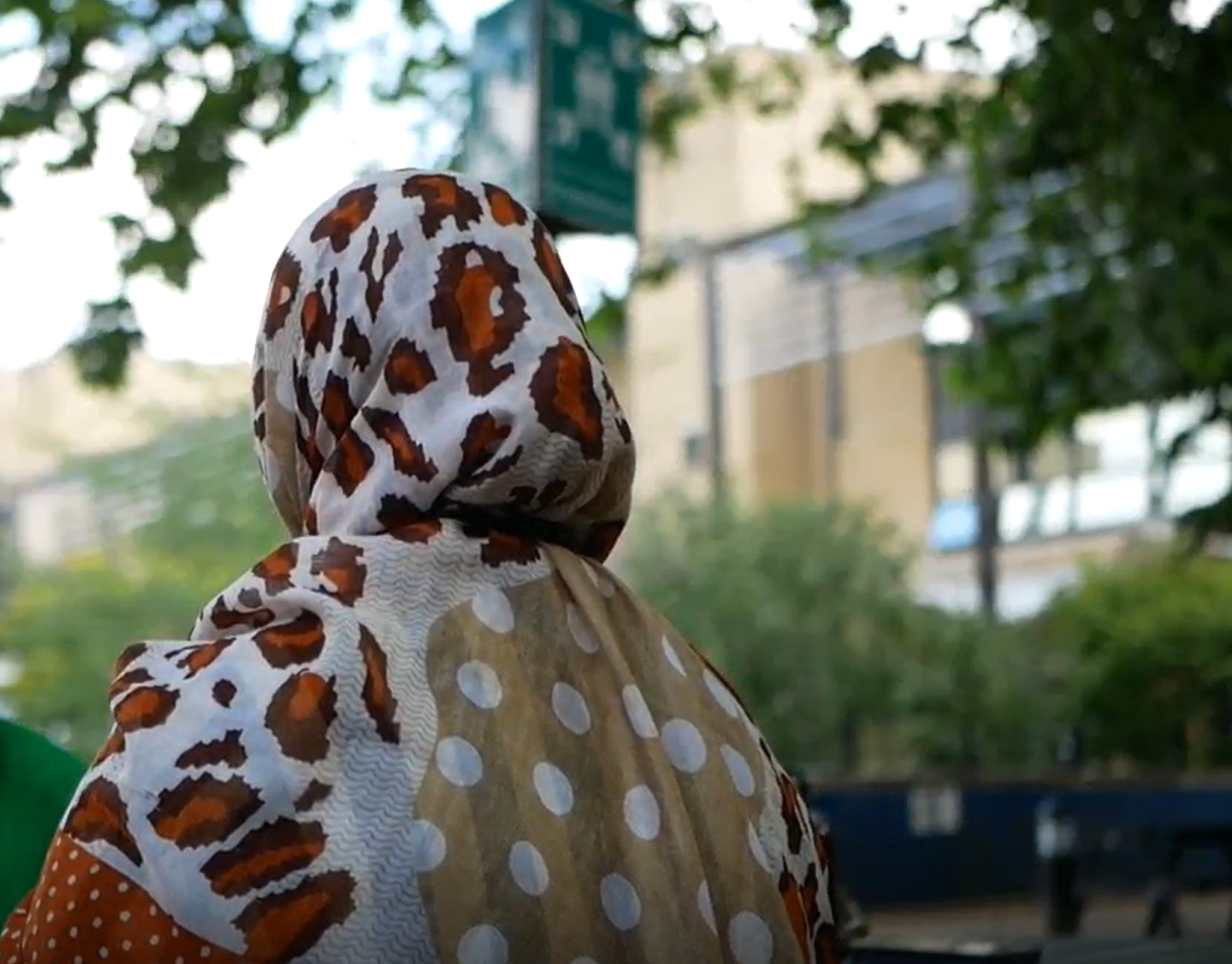
What needs to change
Demand for ESOL is rising. Since 2021-22, learners of ESL have jumped by 17%. Yet, learners face an ESOL "postcode lottery".
In some areas, the prioritisation of ESOL and flexible use of funding has enabled it to be delivered effectively.
Whilst, in others, for many learners, suitable ESOL classes, and the lifechanging skills they provide, remain out of reach, with only inaccessible, insufficient, or inappropriate classes on offer.
We are calling for changes to remove these barriers to access, like incentivising employers to provide ESOL in the workplace, and providing a curriculum that is fit for purpose.
The cost effective and highly practical actions that we recommend could make a world of difference to the learning and lives of ESL speakers, unlocking their skills and experience for the benefit of the whole of the UK.
Keep up to date with The Bell Foundation's work
We would like to thank Kent Refugee Action Network, Hackney New City College, and Cambridge Regional College for their support with facilitating these interviews!

